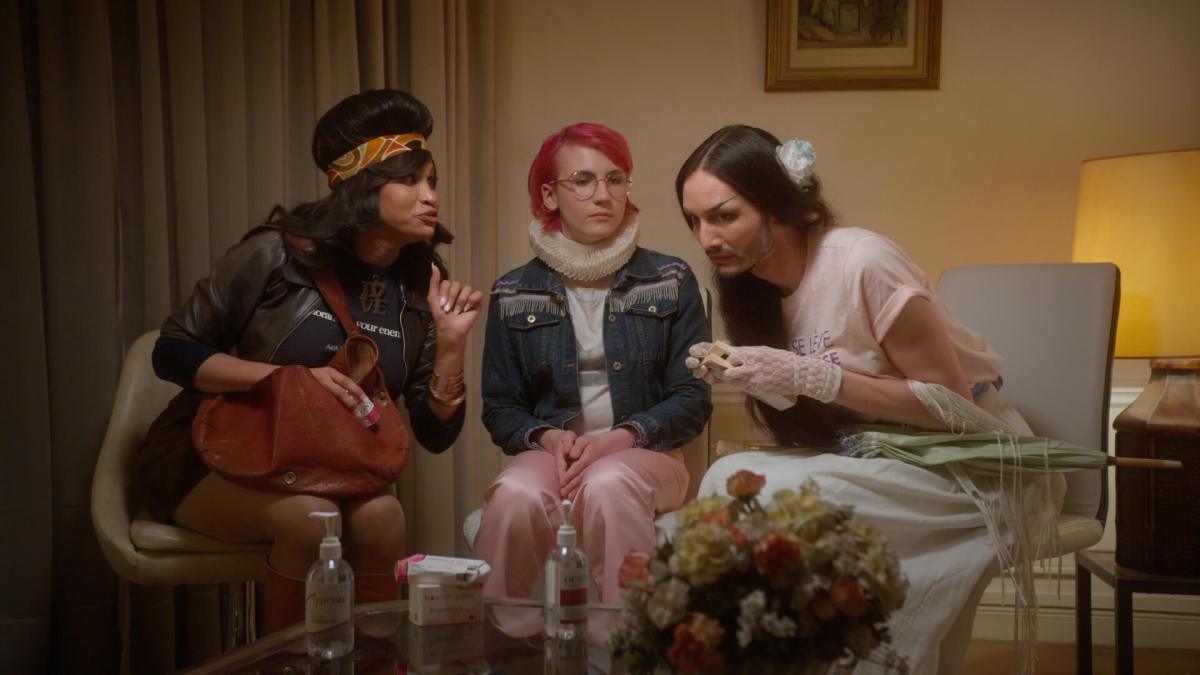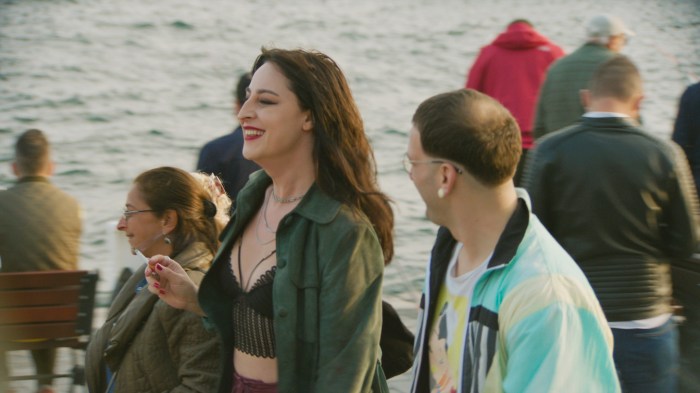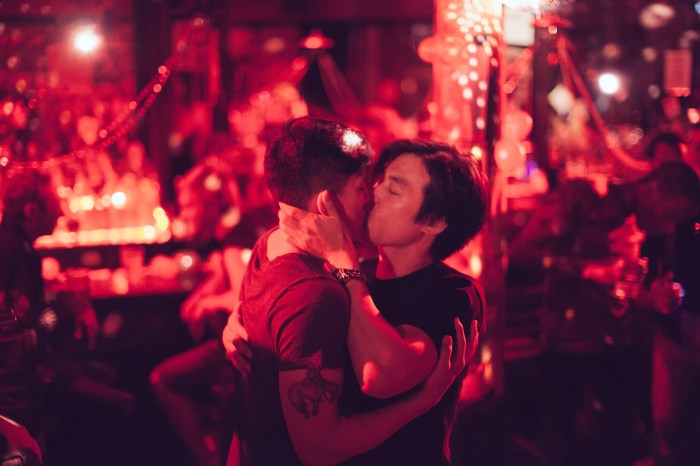The documentary “Orlando, My Political Biography” bears out one of its performers’ contention that conventional language is inadequate for describing the multitudes of sexual and gender difference, so we must turn to poetry. Its director, Paul B. Preciado, already refused to make a distinction between memoir and critical theory in his 2008 book “Testo Junkie.” “Orlando, My Political Biography” mixes fiction and lived experience, the stories of its subjects and the work of Virginia Woolf, with a fine disregard for binaries of all kinds. While more accessible than his writing, it retains the same refusal of genre limitations.
Preciado, a trans man born in Spain and now based in France, declares “Virginia Woolf wrote my biography in 1928.” He’s referring to this film’s inspiration, lesbian author Woolf’s novel “Orlando: A Biography.” Adapted by director Sally Potter in 1992, “Orlando” provides a fantasy treatment of the family history of Woolf’s lover, Vita Sackville-West, in which they start out life as a man and suddenly change gender while asleep one night in Turkey. Preciado is drawn to this narrative of transformation for its painlessness. He turns it into a universal metaphor for trans and non-binary people’s experience, calling them “Orlandos.” All performers who appear in “Orlando, My Political Biography” announce to the camera, “In this film I’ll be Virginia Woolf’s Orlando.”
Preciado’s films risks feeling a bit too twee to do justice to its subject matter. Clothing the actors in period costume, with a ubiquitous white ruffled collar, bridges the gap between the past and present — “Orlando, My Political Biography” takes great pains to establish that trans people have long existed — but it also suggests college theatrics. (For instance, the image of surgeons cutting the sentence “violence was all” out of a book is a rather tepid response to such violence.) Most of the time, it arrives at a rare balance, committing itself to depicting real injustice without becoming trauma porn.
It calls out the gatekeepers of gender, especially psychiatrists who don’t understand the lives of non-binary people yet hold the power of access to medication over them. (A group of people waiting in their shrink’s office break into the song “Pharmacoliberation.”) Preciado’s monograph “Can the Monster Speak?” originated as a speech delivered to a group of psychoanalysts who responded with horror and walked out. Returning to one of the themes of “Testo Junkie,” “Orlando, My Political Biography” suggests that medicine is used as a system of control, where cis people have access to the same meds trans people need to jump through humps to get. The film also addresses misgendering via legal ID; its final scene, with a cameo from filmmaker and novelist Virginie Despentes as a judge, promises a revolution in the law.
Preciado’s use of “Orlando” as a metaphor for trans and non-binary identity rests uneasily with Woolf’s position in the European canon. The director carefully cast people from a range of ethnicities, and demonstrates how deeply meaningful the book has been for him. He also calls out the classism of Woolf’s depiction of aristocratic privilege: wealth lubricates the painlessness of her Orlando’s change of genders. Even so, one suspects that non-European trans people might not place “Orlando” so high as the central reference point for their experience. As much as Preciado turns “Orlando” into a concept far beyond Woolf’s novel, its relative respectability makes this easier.
“Orlando, My Political Biography” covers a huge amount of ground in less than 100 minutes. It turns to Marsha P. Johnson and Christine Jorgensen for very different images of trans women from history, while having its performers speak to the camera in response to archival clips. A Venezuelan woman made up and dressed like a glamorous movie star from the ‘60s speaks about her own experiences of violence while doing sex work, cut with a fiery speech by Johnson. In response to the question “Do you have plans regarding theater?,” heard in a news clip, one person says, “I can’t play the theater of heterosexuality either,” radically queering the reporter’s original meaning. “Orlando, My Political Biography” places its hope in the “Orlandos to come,” insisting on the legitimacy of trans children.
“Orlando, My Political Biography” | Directed by Paul B. Preciado | Sideshow/Janus Films | In French with English subtitles | Opens Nov. 10th at Film Forum



































